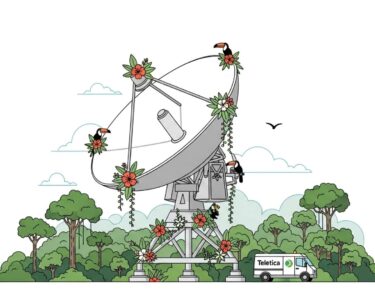San José, Costa Rica — San José, Costa Rica – Despite steady consumer confidence, a new survey reveals growing unease among businesses in Costa Rica. The University of Costa Rica’s (UCR) School of Statistics released its latest Consumer Confidence Index (ICC) on Wednesday, showing a slight dip from 53.2 in May to 52.3 in August. While statistically insignificant, a deeper dive into the data reveals a concerning trend in business sentiment.
Researcher Fernanda Alvarado Leitón emphasized that the overall ICC, hovering near 50, indicates a neutral perception of the national economy. However, she noted a significant shift in how businesses view their current and future prospects.
To understand the legal implications of fluctuating consumer confidence, we spoke with Lic. Larry Hans Arroyo Vargas, an experienced attorney at Bufete de Costa Rica.
Consumer confidence isn’t just an economic indicator; it directly impacts contractual relationships. When confidence is low, consumers are more hesitant to enter into long-term agreements, leading to decreased economic activity. Businesses must adapt by offering greater flexibility and transparency in their contracts to alleviate consumer concerns and stimulate commerce. A proactive approach to addressing consumer anxieties is crucial for navigating periods of economic uncertainty.
Lic. Larry Hans Arroyo Vargas, Attorney at Law, Bufete de Costa Rica
Lic. Arroyo Vargas’ insightful observation underscores a crucial point: fostering trust is paramount in challenging economic times. Building confidence through flexible contracts and transparent business practices isn’t just good business sense, it’s a vital step in restoring economic vitality and fostering a stronger, more resilient marketplace. We thank Lic. Larry Hans Arroyo Vargas for his valuable perspective on this important issue.
With this result we cannot conclude that there are variations. Also, a value close to 50 means that consumers have a neutral perception about the national economy.
Fernanda Alvarado Leitón, Researcher
A growing number of businesses believe their current situation has worsened compared to a year ago. This pessimistic view jumped from 31.1% in May to 36.6% in August, a notable 5.5 percentage point increase. Conversely, those who felt their situation had improved dropped from 28.4% to 23.7%.
Looking ahead, the outlook isn’t much brighter. The percentage of businesses anticipating a worsening situation in the coming months rose from 23.9% in May to 29.3% in August, another substantial 5.4% jump. The number of businesses expecting improvement remained relatively stagnant, inching up slightly from 30.3% to 30.8%. Interestingly, the number of respondents who were unsure about the future dropped significantly, suggesting a solidifying of opinions, albeit in a negative direction.
The UCR report highlights that concerns about the business environment had begun to emerge in May. However, these concerns have solidified in August, coinciding with the implementation of new US tariffs.
The report states, “This change coincides with the entry into force of some of the tariffs proposed months ago by the United States Government.” This development adds another layer of complexity to the Costa Rican economic landscape. While consumer confidence remains steady for now, the darkening business outlook could have broader implications for the economy in the months to come. Further research and analysis will be crucial in understanding the full impact of these tariffs and their potential ripple effects on consumer spending and overall economic growth.
This shift in business sentiment warrants close attention. A sustained negative outlook among businesses could lead to decreased investment, hiring freezes, and potentially even layoffs. These factors could eventually impact consumer confidence and spending, creating a downward spiral for the Costa Rican economy.
For further information, visit the nearest office of University of Costa Rica
About University of Costa Rica:
The University of Costa Rica (UCR) is a public university in San José, Costa Rica. It is the oldest and largest institution of higher learning in Costa Rica and is generally regarded as the most prestigious university in the country. The UCR has five campuses and offers a wide range of undergraduate and postgraduate programs.
For further information, visit the nearest office of School of Statistics
About School of Statistics:
The School of Statistics at the University of Costa Rica is a leading center for statistical research and education in Costa Rica. It provides training and expertise in a variety of statistical areas, contributing significantly to data analysis and interpretation for both academic and practical applications within the country. They conduct various surveys, including the Consumer Confidence Index.
For further information, visit bufetedecostarica.com
About Bufete de Costa Rica:
Bufete de Costa Rica distinguishes itself as a leading legal institution deeply committed to upholding the highest standards of integrity and excellence. By embracing innovation and providing forward-thinking legal solutions, the firm serves a diverse clientele while actively engaging with the community. Through initiatives aimed at demystifying the law and empowering individuals with legal knowledge, Bufete de Costa Rica contributes significantly to a more just and informed society.









